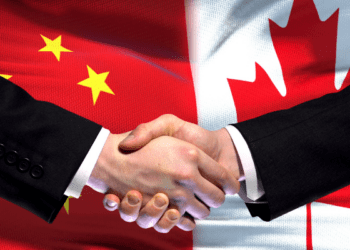OTTAWA, ON (September 12, 2023): The future of Artificial Intelligence, and its predicted effects on our lives, dominates contemporary discussions. Optimistic pundits express wonder over the inevitable increases in productivity for early adopters of the new tech. Less enthusiastic stakeholders express deep worry about the implications of AI on different sectors of employment. Others make predictions of AI induced cataclysmic doom for our civilization.
In this paper, Artificial Intelligence: How big a threat to middle-class, white-collar jobs?, Senior Fellow Philip Cross looks at the possible economic impacts of AI and attempts to provide a nuanced perspective on its benefits – countering the apocalyptic hype. Cross examines the economic impact of AI so far and compares its evolution with past forecasts of how technological change would affect workers.
“Apocalyptic scenarios about AI’s impact are usually coupled with calls for more government regulations,” writes Cross. “This paper cautions against a rush to increase government regulations and spending based on as yet unfounded concerns about the impact of AI on jobs.”
Although early automation disrupted employment patterns in farming and factories, Cross notes that overall job growth accelerated as higher incomes drove the expansion of other industries. In 1989, a Statistics Canada survey found that 52 percent of Canadians felt that computers and automation would eliminate more jobs than they create, even though employment in Canada grew from 13.0 million in 1989 to 19.1 million in 2019.
Cross points to recent developments in the labour market that disprove the gloomy predictions: employment rates are at an all-time high and unemployment reached a record low of 4.9 percent in 2022. The unemployment rate remains near historical lows while the 4 percent job vacancy rate remains well above its pre-pandemic levels.
“Pessimistic forecasts were all incorrect because of what economists call ‘the Luddite fallacy,’ which ignores the fact that productivity gains from technological innovation always have immediately or eventually generated more income and jobs,” argues Cross.
It is more likely that AI will make workers more productive and thus more desirable to employers. For example, pill-dispensing robots will free pharmacists to focus on patient counselling, while ATMs are already allowing bank tellers to shift to financial advising.
Moreover, Cross notes that the presence of humans helps people accept the intervention of intelligent machines – most people do not trust machines to make important decisions, especially potentially life and death decisions. A human presence will always be necessary.
“Humans process three types of data that machines lack: our senses, judgement of preferences, and access to data that is confidential and therefore off-limits to machines,” writes Cross.
Nonetheless, there are reasons to expect AI adoption to be slower than many expect. AI is most likely to be used in heavily regulated industries where powerful public sector unions will resist its deployment at the expense of their members. Nor is AI reliability iron clad. AI still produces plausible but incorrect information.
Ultimately, humans retain key abilities that machines cannot duplicate or replace. Human beings are underrated. Although economists and pundits have worried for decades that robots and automation would upend the lives of the work-force, the evidence suggests the contrary.
“Humans are too intelligent, creative, versatile, and adaptable to not find interesting work to do.”
To learn more, read the full paper here:
***
Philip Cross is a Munk Senior Fellow at the Macdonald-Laurier Institute. Prior to joining MLI, Mr. Cross spent 36 years at Statistics Canada specializing in macroeconomics. He was appointed Chief Economic Analyst in 2008 and was responsible for ensuring quality and coherency of all major economic statistics.
For further information, media are invited to contact:
Skander Belouizdad
Communications Officer
613-482-8327 x111
skander.belouizdad@macdonaldlaurier.ca







